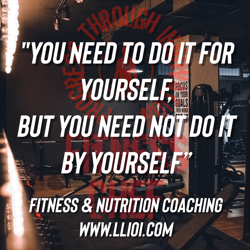Do you have to weigh your food? Should you have to? The answer can be a complicated one. It truly depends on who you are as a person. Time to explain.
"Losing weight requires lifestyle changes that affect energy balance, according to the January 2016 position statement from the Academy of Nutrition and Dietetics (AND) on interventions and treatments for the management of overweight and obesity, which was published in the Journal of the Academy of Nutrition and Dietetics. Put more simply, to lose weight, you must take in fewer calories than those you burn.
Although exercise is a pivotal part of the weight-loss equation, what you eat may have more of an effect, according to an August 2012 study published in Obesity. The study researchers found that diet-only interventions helped participants lose 8.5 percent of their body weight over the 12-month study period, while exercise-only interventions produced only 2.4 percent loss. For the record, the group that followed a weight-loss diet and exercise program lost the most at 10.2 percent.
Weighing Food for Portion Control
The AND suggests that portion-controlled plans are very effective at helping people lose weight and keep it off. Weighing food is a good way to keep portions in check and may make you more aware of portion sizes. Some scales even provide nutrition information, such as the amount of carbohydrates.
When weighing food on a food scale it's important to know basic portions and weights. For example:
- 117 grams (4.1 ounces) of cooked whole-wheat pasta = 174 calories
- 182-gram (6.4-ounce) apple = 95 calories
- 156 grams (5.5 ounces) of cooked broccoli = 55 calories
- 170-gram (6-ounce) cooked salmon fillet = 309 calories
- 29 grams (1 ounce) of low-fat Swiss cheese = 50 calories
Weighing food at home is easy, but you may not be able to take your food scale everywhere you go. The Mayo Clinic suggests using familiar objects to help keep portions in check when you don't have your food scale.
- One baseball = 1 cup (8 ounces or 227 grams)
- One tennis ball or hockey puck = 1/2 cup (4 ounces or 113 grams)
- Deck of cards = 3 ounces (85 grams) of meat, chicken or fish
If the use of food scales, measuring cups and familiar objects aren't helping you with your weight loss, use your plate to keep calories and portions in check. Fill half your plate with vegetables, one-quarter with protein and one-quarter with whole grains. Add low-fat yogurt or a piece of fresh fruit to round out the meal."
There are benefits to weighing your food. You have a better understanding of the total amount of calories you are ingesting at any given meal as well as a closer understanding of the macronutrients you are taking in. All this helps with body composition. Not all calories are created equal.
Getting back to my original statement, it depends on the person. An athlete who has a strict eating plan for performance purposes, or a competitive bodybuilder who has a specific body look they must attain will require a set number of macronutrients and calories. Every gram, every calorie, every morsel will be accounted for in order for them to reach their goal(s). If you are not any of the aforementioned individuals, weighing your food may not be a priority or a necessity. Let me rephrase, having exact numbers may not be necessary. Getting in the ball park of a set of parameters will still be beneficial to a standard weight loss or weight management program. Weighing food can be a tedious and sometimes mind numbing affair. Not to mention you can't bring your scale with you wherever you go and sometimes the kitchen staff at a food establishment may not be so kind and give you the raw weight of food before serving it. That just isn't something they are used to being asked. I know, because I did that at a cafe once. I asked the weight of a beef Pattie before ordering it. I didn't want to buy it if it wasn't going to be enough for me. I was that guy...anywho!
What can happen when weighing food goes wrong...
Why weighing your food can make a difference for your health (click for the full article)
"In some cases, weighing foods isn’t recommended. Weighing and measuring foods can become an unhealthy obsession for people with disordered eating.
I also don’t recommend that parents weigh and measure foods in front of their children. Doing so can influence a child’s perceptions about food and healthy eating."
Just like everything I guess, there are limits. The truth of the matter is, weighing food can be beneficial to gain a better understanding of portion size as well as total amount of food ingested. Like I said earlier, performance athletes and professional bodybuilders will have a very strict eating program to follow. For them, weighing food is part of the job.
Do what is best for you. Ultimately understand that it is ok to miss a little here and there. The overall LARGE picture is what truly matters in the day to day.
Do the work! Get to eating!

